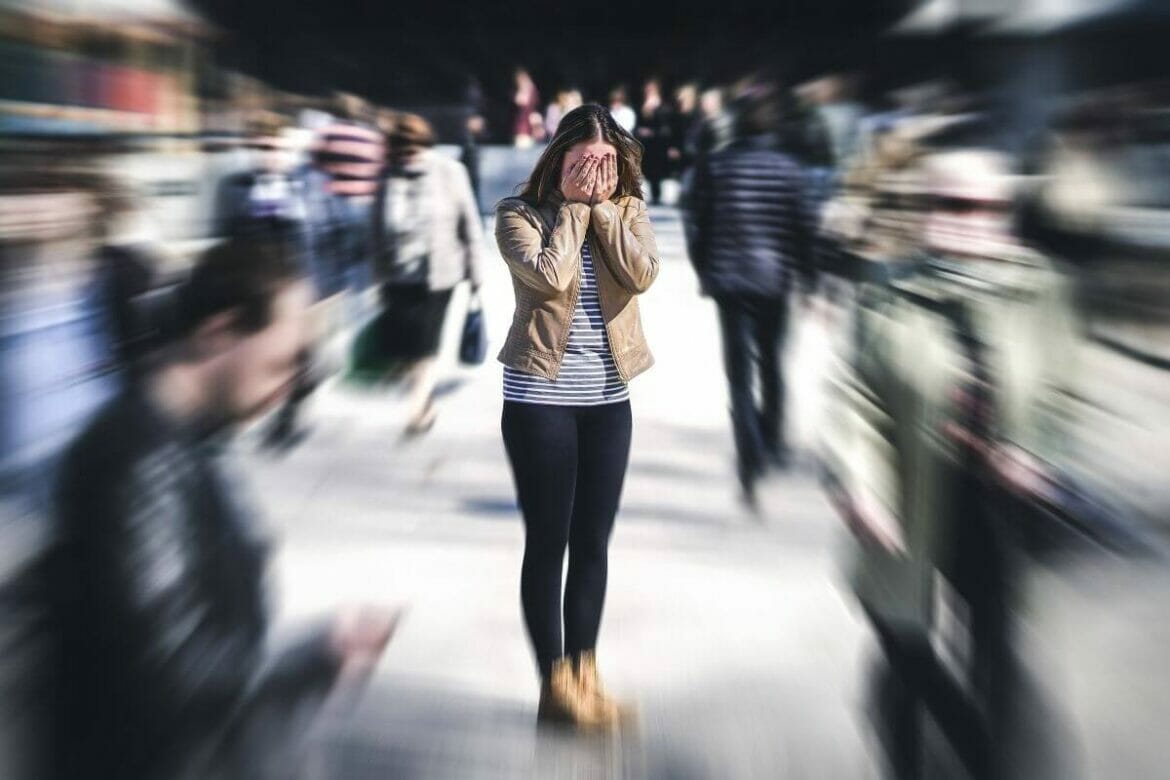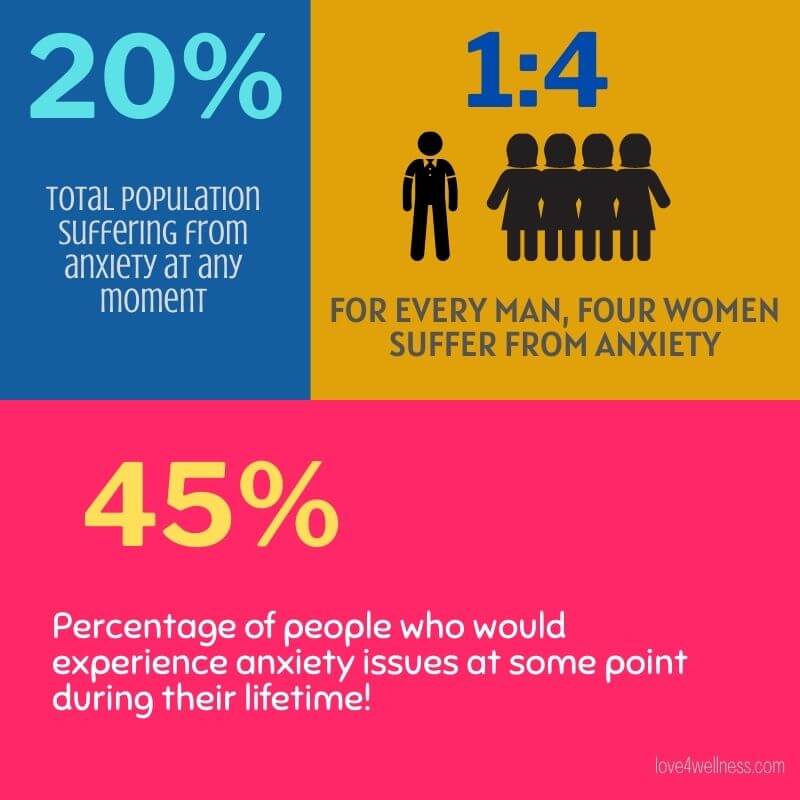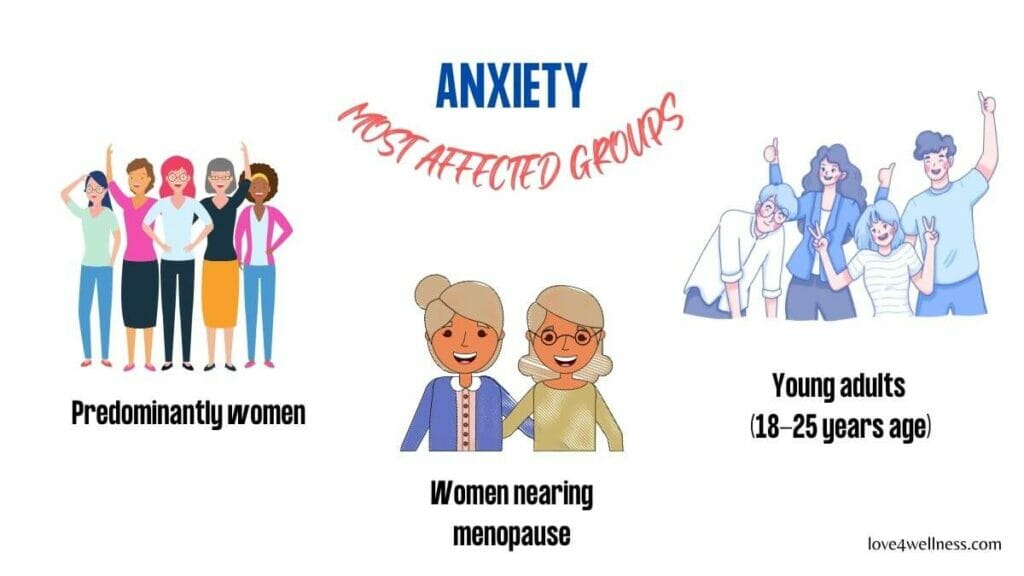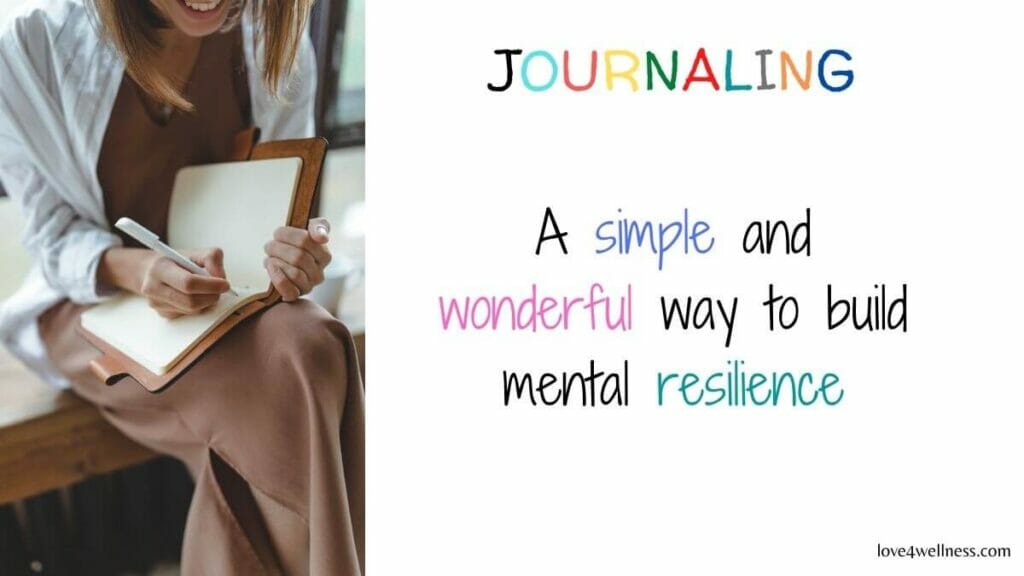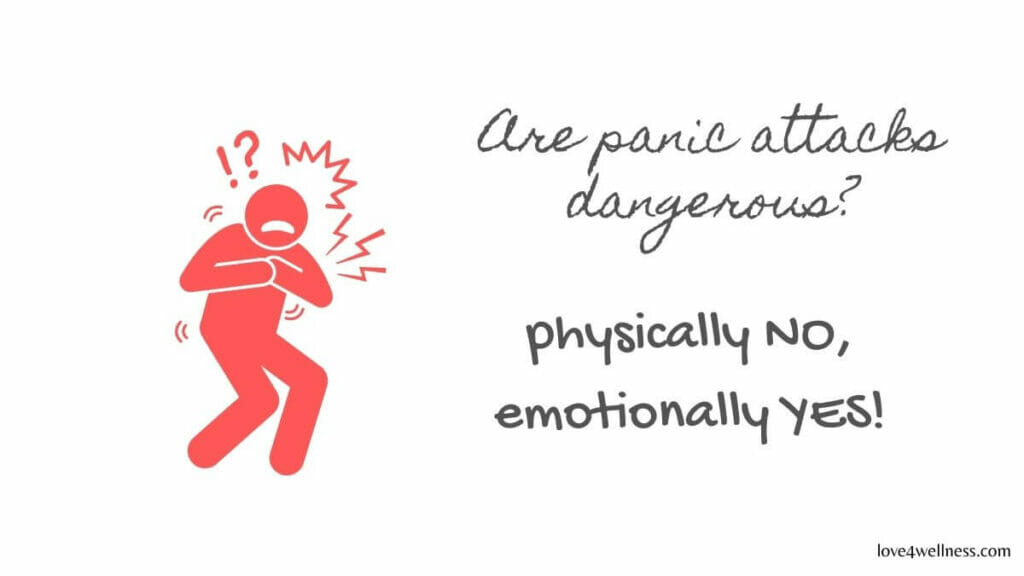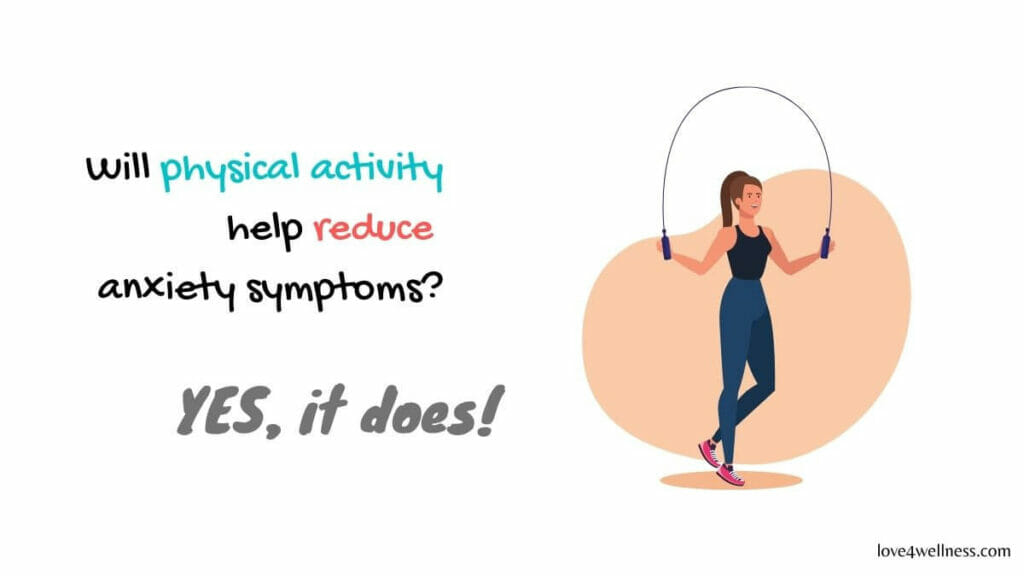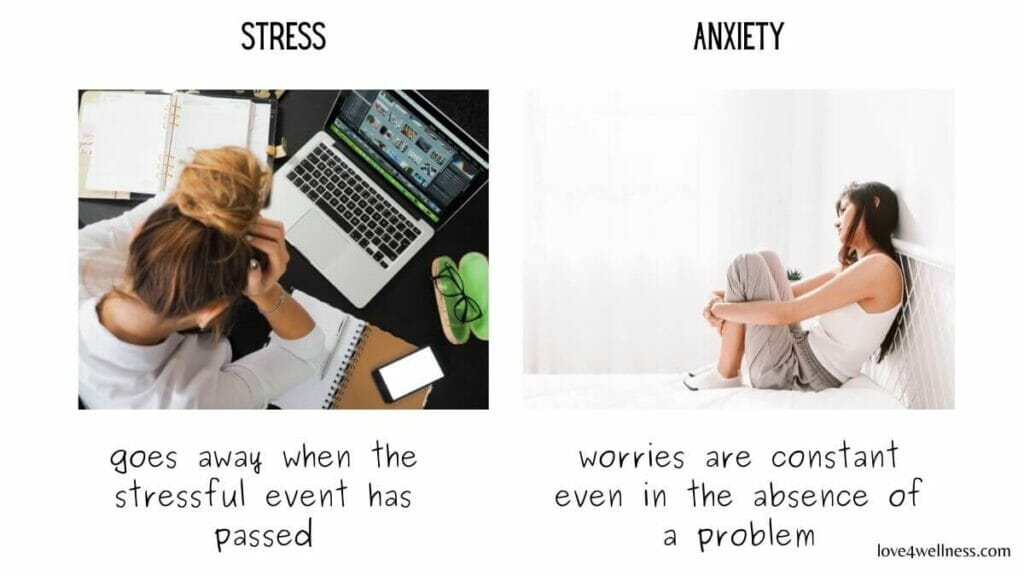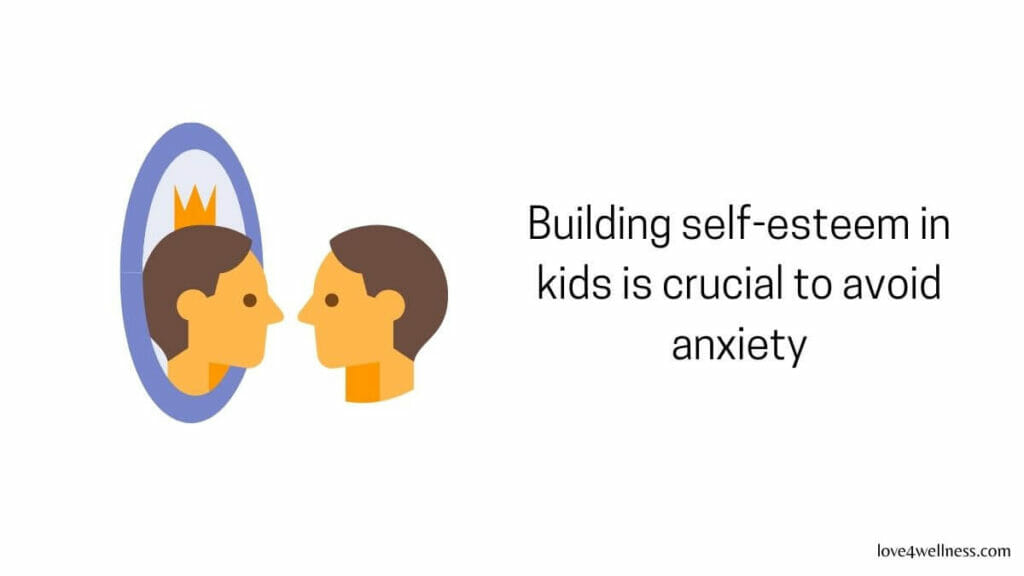Anxiety is a physical reaction caused by some changes occurring in the brain. It’s basically an evolutionary process that we all have that keeps us safe. So it’s like a safety factor; it’s like an early warning signal.
Listen to Wendy explaining the anxiety basics
The fight or flight response
If you think back to fighting bears for survival in caveman times, literally you’d see a bear that was challenging you for food and the brain triggers an alert system. So it’s either fight, flight, or freeze.
Are you going to stand and fight? Are you going to freeze, or will you try and run off as fast as you can?
Your brain goes into protection mode at that instant. What actually happens physically is that the brain triggers the release of lots of chemicals into your bloodstream and speeds all of your physical systems up. Everything goes into emergency mode. Your heart pumps blood through your bloodstream faster than normal; literally, everything is heightened.
All of your senses are heightened because the brain says we might be dying here; we need to prepare to die or avoid death.
So, when does it become a problem?
It becomes a problem when that system is triggered wrongly. Anxiety occurs when the survival instincts are triggered for wrong reasons, to be exact, false reasons. So, when you suffer from anxiety, your brain becomes a bit of a drama queen and is easily triggered. It starts to have a meltdown about something that’s not going to kill us.
For example, people can have a panic attack if they worry about being in the midst of a large crowd. Now, we know that you won’t die in a large crowd of people. Although you could question that with Covid, that’s probably not a good example in current circumstances; of course, under normal circumstances, just being around a lot of people is not a threat to life or a threat to health. But if large crowds of people trigger your anxiety, your brain will say, prepare to die. This will trigger the release of chemicals into your bloodstream. The problem with that release of chemicals is that it speeds everything up, so we prepare to die or fight.
What are the reasons?
The reasons for anxiety are huge. As I say, it’s a self-protection mode, and various reasons can trigger it. In fact, for some people, it can be for no particular reason. This type of Generalised anxiety occurs for all sorts of random reasons, and it’s like layers of things that make you feel more and more anxious.
And there are specific types of anxiety, like health anxiety, which we call a hypochondriac. You worry that you’re going to get this terrible illness and die. Or it can be social anxiety where the number of people around you makes you feel very anxious. A traumatic event can be a trigger for some. Work stress, job switch, divorce, teen parenting, abuse of any kind are a few of the many reasons that can trigger anxiety.
What are the physical symptoms?
The list of anxiety symptoms is huge, and several of them, physical. People who suffer from anxiety will often be able to remember a case when they felt so anxious that they thought the anxiety might actually kill them. The physical symptoms can be that dreadful.
- Typically people will feel nauseous. This is because the chemicals that your brain triggers to try and keep you safe in the face of impending death and destruction can cause nausea.
- Most people will get jelly legs because of the big flood of adrenaline. Some may get palpitations and think they have a heart attack!
- Headaches, migraines, feeling very shaky, feeling absolutely terrified are some of the other physical symptoms.
I had Bell’s palsy triggered by stress and anxiety, in which the left-hand side of my face was paralysed. That’s because, when I was 18, I got myself into a fitful state about A levels and exams. That triggered my nervous system, which paralysed just the left-hand side of my face.
So, yeah, several anxiety symptoms are physical, and some can do severe harm.
Does anxiety have a genetic predisposition?
There, I’m biased. There are elements that people can be born with a genetic predisposition, but typically it’s learned behaviour.
You might have an anxious parent, and so you adopt an anxious reaction to not-so-serious circumstances. Or you could have a parent that was quite critical. So you learn to be afraid of the world and everything in it. So as a behaviourist and as a psychologist, I would say, typically, it’s learned behaviour. Still, a little body of evidence considers genetics as a reason, at a microscopic level, though.
What is the percentage incidence of anxiety in people across the world?
At any point in time, around 20% of the population suffers from anxiety problems. Also, more women suffer from anxiety than men in a ratio of 4:1. That is, for every man affected, four women suffer from anxiety.
Are there any credible reasons for more women facing anxiety issues? Not really! But you know, sort of anecdotally, there is a little bit of research about this. The fact that men and women use their brains in quite different ways might be the reason for more women to suffer from anxiety.
Women are genetically predisposed to be better at multitasking because they are the main caregivers for children. This means women can run a million things simultaneously in their minds, and they do that more than most men.
When we say anxiety, overthinking and over worrying are common reasons. Now, apply this to multitasking women. More thoughts in the head, probably more worries, and the result is anxiety!
So, yes, more women feel anxious than men. And the stats say approximately 45% (no gender split here) go through some kind of anxiety at some point in their lifetime.
Which age group is most affected and why?
There’s a huge predisposition to anxiety for a younger age group. To be specific, it is 18-25. However, lately, the numbers are clocking up for pre-18 who are in their late teens. And this is attributed to the pressure on teens, including parental pressure, academic pressure, peer pressure, and social pressure. So that’s typically a big group of anxious people, women in particular.
The other group where anxiety starts to peak is in perimenopausal and menopausal women because of hormone fluctuation. The decrease in estrogen can create anxiety in women, so that’s because of hormones coupled with psychological factors as well. Often, the perimenopausal and menopausal women face a label “change of life”. I would say it is a horrible label, and it can create anxiety for many women. So, yes, that’s another age group where anxiety peaks.

And, it is worth noting here, I typically treat anxiety in women differently because women tend to run anxiety slightly differently than men. Interestingly this aspect is across all age groups!
If a person suffers from anxiety, how does one cope with it? What kind of support does the person need, and what are the treatment options?
The treatment options for anxiety are:
- Medication
- An intervention based on CBT
In fact, NICE (The National Institute for Health and Care Excellence) recommends CBT almost every year as the most effective treatment for anxiety.
Medication is essential when people are struggling to get on with their day to day lives. However, medication alone is not enough to tackle anxiety because, of course, you’ll still be thinking and doing all the things that create anxiety in the first place.
So you must include a lot of other helpful practices such as mindfulness, breathing exercises, yoga, and exercise. They greatly help to reduce anxiety but again, they won’t help you overcome it. The only things that help you get to the other side of anxiety are medication in conjunction with a CBT based intervention.
Is there anything called mild anxiety or subclinical anxiety which need not be treated with expert advice? If there is one, how do we draw a line to differentiate between need-not-be-treated anxiety and must-be-treated anxiety?
Yes, anxiety can be felt at many different levels. I often talk about anxiety as being at a certain volume. I teach people how to turn the volume dial down on anxiety.
Anxiety needs to be treated if it impacts your life in any way.
Do you need medication? Your doctor decides.
What consequences can occur when anxiety is left untreated?

Sometimes it comes in peaks and troughs, so you might think you’ve outrun it, but it will definitely be back. It never goes away for good. And how often do you suffer from anxiety? Over a lifetime, it just gets worse and worse. So it really is important to treat anxiety because it’s like anything you practice, you know, you get better at it, so you don’t get better at getting rid of anxiety. You only get better at managing it.
What are some very simple things one can follow every day to be mentally strong and possibly avoid anxiety issues?
Journaling.
Yes, jotting down things you do every day can make you mentally strong and avoid anxiety issues because it helps you measure how you feel about the world.
One of the big things that feed anxiety is avoidance. So if you are somebody that gets a big bill in and shoves it in the back of the drawer, then you definitely leave the door wide open for anxiety to step in.
So to be mentally strong, it’s about being honest with yourself about what’s going on. And, you know, to be honest with yourself means you are developing your mental resilience!
Secondly, being honest with people around you about what’s going on for you and talking about it and having the conversations can possibly avoid anxiety issues.
Avoidance or shunning away opens the door to anxiety, so be direct, honest, open, and build psychological and emotional resilience.
Can panic attacks do any harm?
Panic attacks can feel like you’re dying. So they may feel like a very dangerous thing, but they are absolutely not dangerous. I know it doesn’t sound very popular, but it doesn’t matter how bad a panic attack you have or how often you have them; they are harmless.
From a physical perspective, they are certainly not dangerous. Still, I also totally understand that anyone who suffers from panic attacks will feel awful. And that’s a scary thing because the comfort zone of things you feel comfortable with will get less and less. So panic attacks are highly dangerous to your emotional and psychological well being.
Response to stress in early humans was fight/flight. Both these responses involved physical exhaustion. Assuming anxiety was not prevalent in ancient times, can we conclude physical activity helps the body to get out of stress easily?
Yes, it definitely does.
Take the same example; you are escaping a sabre tooth tiger. Your brain triggers a lot of chemicals, and you are ready to fight/flight; both are physical responses.
Here the physical exhaustion actually helps to dissipate the chemicals through your bloodstream. So they don’t pull in your stomach, which makes you feel nauseous and give you jelly-like legs.
So yes, physical activity is beneficial to lessen the symptoms. However, when feeling nauseous or shaky, many prefer to lay still, which is not a great thing to do. Instead, getting up and walking and getting a breath of fresh air will do a lot of good to you!
Are anxiety and stress the same?
Remember that stress and anxiety feel the same, but they are also different, and the way you define them from a psychological perspective is also different.
Stress is usually a reaction to external factors. And, almost always, the symptoms disappear when the stressful situation ends. So stress about financial pressure will be gone when you have got money.
On the other hand, anxiety is due to worries or fears about things that threaten you. Many are anxious about anxiety itself. Will I get anxious is a common worry among people.
Thus, typically anxiety is something that starts from within you; literally, your brain creates anxiety. And, stress is due to external factors or situations.
Why is overthinking often linked to anxiety?
Overthinking is one of the reasons that lead to anxiety. It is a kind of loop that can make you more and more anxious, and your brain becomes a proper drama queen.
Oh, my boss doesn’t look happy. Did I do anything wrong? Was that report not good? Will I be fired? How will I pay the mortgage loan? – This is a typical overthinking where one thought leads to another and drags you down a rabbit hole, making you feel awfully anxious.
Many psychologists reiterate the power of positivity to stay away from anxiety. Surrounding oneself with conscious positivity – does it really work?
Yeah, there’s an emerging branch of positive psychologists without a doubt, but does it really work? It can help, but it can only help if you’re negatively skewed.
When you challenge your thoughts, it’s not about putting the rose-tinted glasses on and just making everything happy and peaceful. That’s not reality, and the illusion would break sooner. So, are the thoughts that you’re running through your mind skewed and out of proportion? Here, yes, positivity helps.
However, you must understand, anxiety is not a bad thing altogether. When there is a job loss, you obviously would feel anxious until you land another job. With conscious positivity and positive psychology, you cannot stay away from this anxiety. No, it doesn’t. Actually, what we’re looking for is a balance of reality.
I am more realistic, and I work with CBT and such interventions for my clients. So. in my opinion, conscious positivity can go a little too far, and it is not good in the long run.
Children with increased competition struggle for existence day in and day out. Though a few parents consciously educate their children not to overexert, kids do undergo tremendous stress. So how do parents help their children in a better way to avoid anxiety problems in kids?
This links back to the increase in anxious kids. Significant evidence supports that young kids go through a lot of competitive pressure resulting in anxiety. Media contributes significantly to this performance anxiety. So whether that’s stuff on telly, you know, really young kids are watching soaps like Love Island where they all look impossibly glamorous. Not to forget the social media, a biggie! So, as a result, there’s a huge, increasing competition for results and success, whether that’s academically or by looks or by results in whatever you do sporting achievement.
And yes, actually, parents can vicariously live through their kids.
But, you know, there’s almost an inflated expectation on kids to be brilliant at everything in every single way, and that’s creating this massive amount of stress on kids.
I had a big referral stream ten years ago from people spending 12 months here in the UK from the US working for a couple of big pharma companies. Apart from the cultural difference, a stark difference between the Brits and US kids was self-esteem. The brits were low in that while the kids from the states had high self-esteem.
I pondered, and what did I realise? Say, little Johnny’s running a race, and he’s come fifth. The US kid was told, little Johnny, you didn’t win, but you came 5th, and that’s fab, whereas, in Britain, it is seen that little Johnny failed!
So it’s a very different cultural norm, which highlights the problem that we have within our society. In the UK, we’re not great at building self-esteem in kids and motivating them as individuals to compete with themselves rather than others.
So, parents, treat your children tenderly, encouraging them to learn and progress but not crumble under pressure. Make them understand that learning new things is the primary goal here. Participation is a must; winning is not. To win may make the kid anxious; participating gives joy.
How dangerous is social media anxiety? Nowadays, we can see even older adults succumbing to social media pressure. How to train your mind to ignore this virtual pleasure?
Well, a lot of people would say it’s a virtual demon.
I think social media is inevitable. You can’t avoid it these days, and it’s almost considered a bit strange to not have any social media presence. So, let us be a bit realistic and keep a tab on the usage. It is about where you choose to spend your time on social media.
A lot of people, even adults, forget that we have a choice.
I run a private practice where I see all sorts of people from across the world. I have also got an online digital intervention called the Fearless Female for women with anxiety, and that’s all done digitally and remotely.
We offer courses and support, some free of charge and some paid for. And when one joins the Fearless Female Facebook group, I monitor it and keep away anything negative. I’m on it twice a day, regularly checking the activity. I just won’t let anything negative go on there because I want to be positive and supportive to women to get past the anxiety. And it’s a great community of women, and that’s something that I offer for free. I answer questions, and I do Facebook live, and it’s all very positive, very helpful, very supportive.
But when we researched setting the course up, we went into a few other Facebook groups; I would read them and feel really low. Because people are suicidal and putting suicidal ideation in there, and it’s like blinding me. This feels quite heavy.
So it’s very much about where you spend your time because you wouldn’t choose to spend time with friends that were always talking about killing themselves. It’s not healthy for anybody to be in that environment.
So, remember you have a choice. Choose what you want to do on social media. Instead of training your brain to ignore negatively affecting stuff, it is better to customise your feed. Who would you spend your time with? A friend who makes you awful or who would uplift and support you? The choice is yours.
Do away with the toxic and set your boundaries are my top tips here!
Wrapping up,
Anxiety is a much-needed mechanism that human bodies have been adapted to since time immemorial. But when you get anxious for non-threatening reasons, it becomes a problem that has to be attended to. When you have known fears/phobias that you get anxious upon and when such behaviour is consistent, you must seek expert help. Similarly, if your brain gets anxious for no reason, it is essential that you visit an expert. Managing anxiety is like shoving off under the carpet. The elephant still stays in the room!
Edited by love4wellness | Images: canva.com
